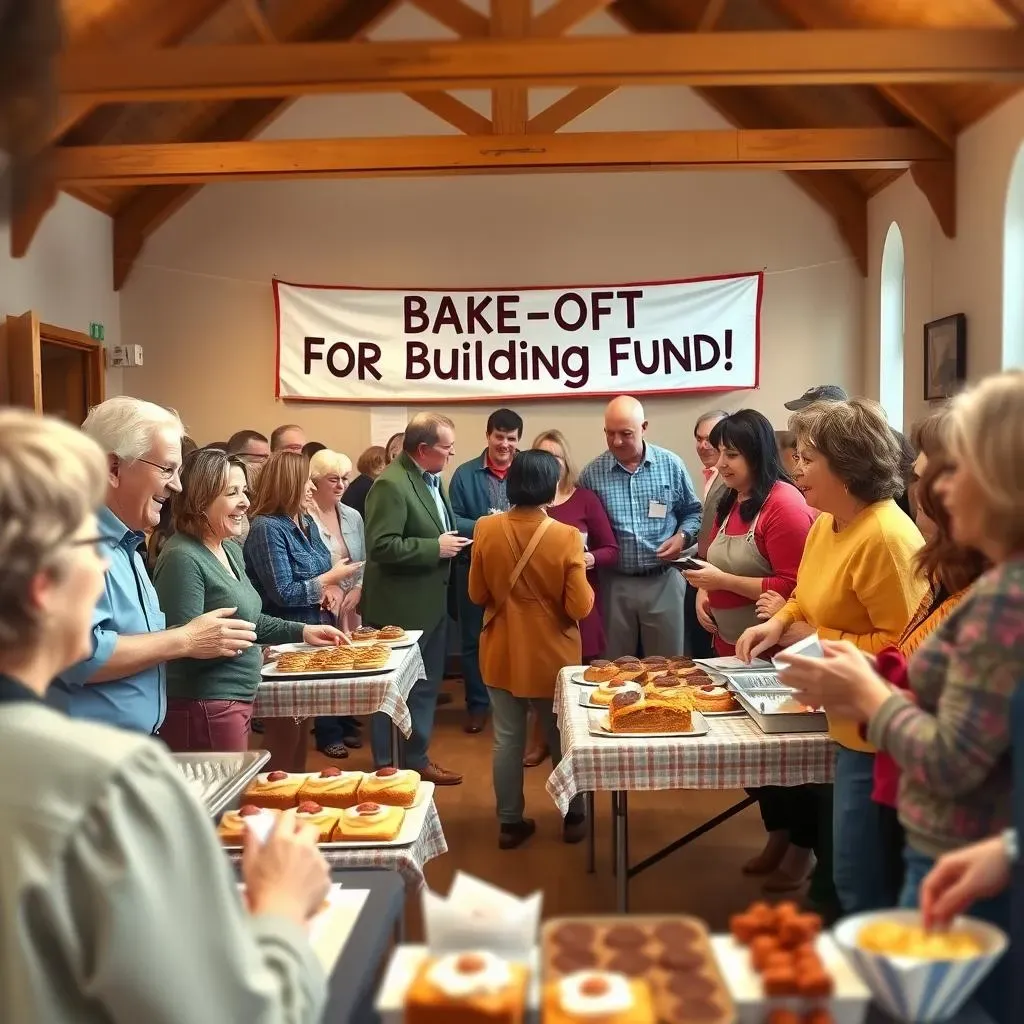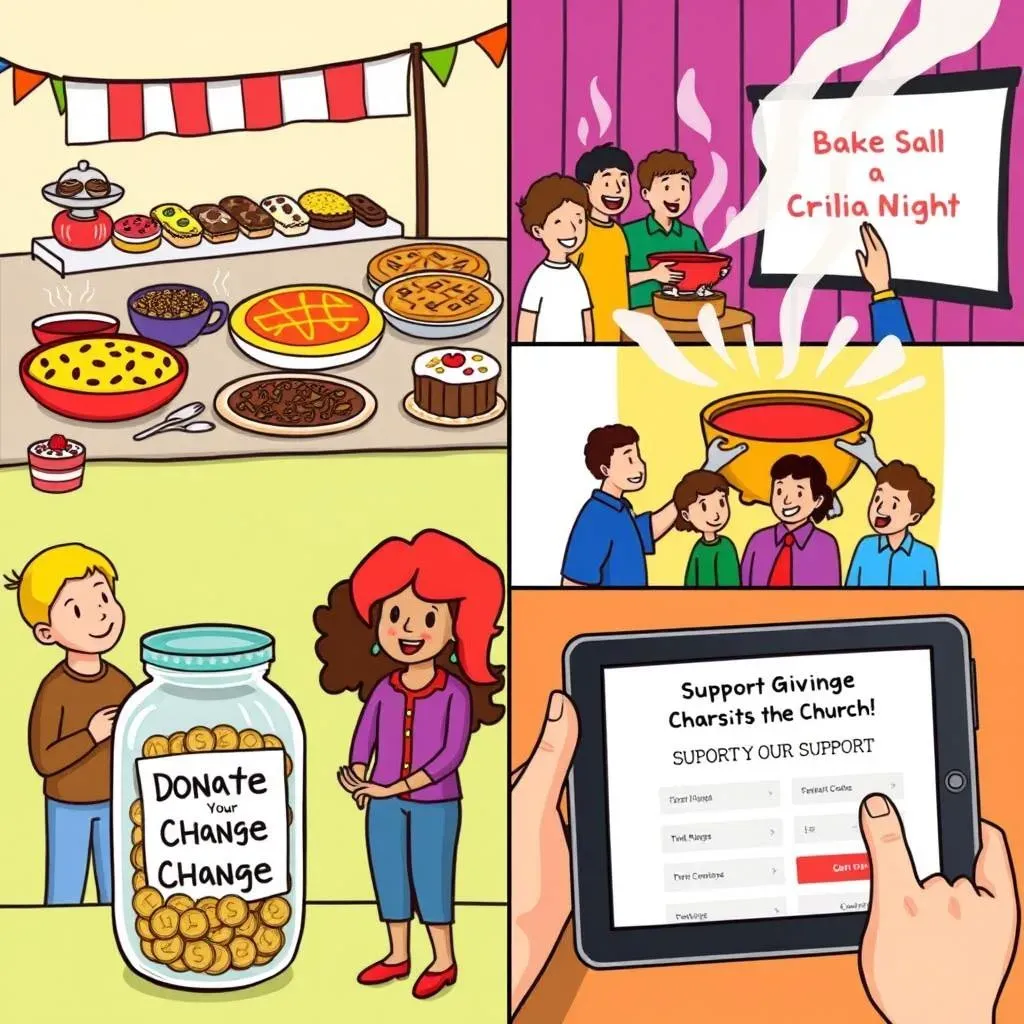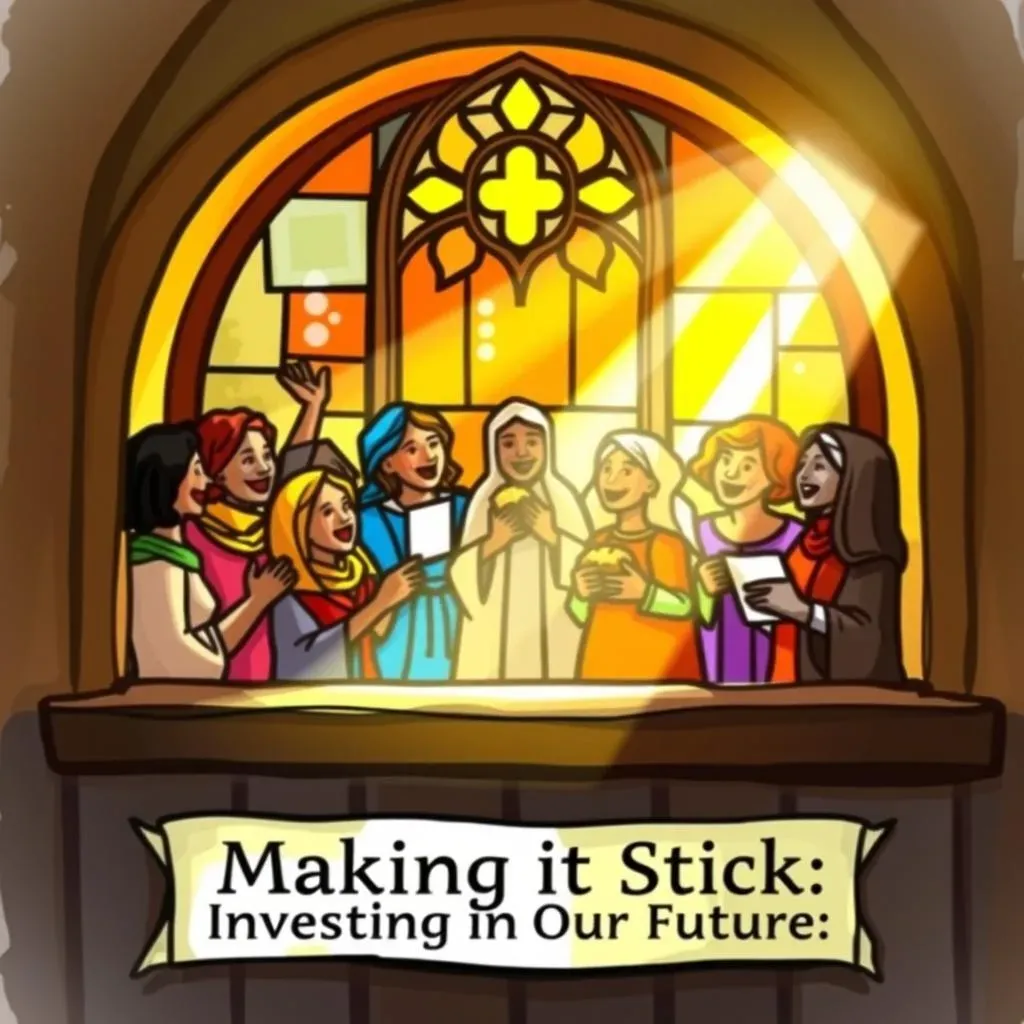Table of Contents
Let's be real. Keeping a small church running takes more than just faith and potlucks. Bills pile up, ministry opportunities pop up that need cash, and sometimes the roof actually leaks. Relying solely on the offering plate feels like trying to fill a swimming pool with an eyedropper. That's where effective small church fundraisers come in. You're not a mega-church with endless resources or a staff dedicated just to development. You've got a passionate congregation, maybe a handful of dedicated volunteers, and a whole lot of heart. But how do you turn that heart into the funds needed to do the work? Forget the tired old ideas that barely break even. We're diving into practical, engaging ways to run successful small church fundraisers that actually get results, cover everything from simple events to funding big projects, and touch on how to rally your people without burning them out.
The Real Deal with Small Church Fundraisers

The Real Deal with Small Church Fundraisers
Facing the Funding Gap
Let's cut to the chase. Running a small church is tough, especially when it comes to money. The plate comes around Sunday morning, a few folks drop in a twenty, some write checks, and maybe a handful use online giving. It's appreciated, absolutely, but it rarely covers everything. Ministry isn't free. Keeping the lights on, paying a modest salary, funding outreach programs, fixing the persistent draft by the sanctuary window – it all costs. Small church fundraisers aren't just 'nice to haves'; they're essential tools to bridge the gap between regular giving and the actual cost of pursuing your mission. Ignoring this reality means constantly scrambling, cutting corners, and potentially missing opportunities to serve your community effectively.
You're likely juggling multiple roles yourself, or you have volunteers stretched thin. The idea of adding "fundraiser organizer" to the list feels less like an exciting opportunity and more like another chore. Maybe you've tried things before that flopped, leaving everyone feeling defeated and the church coffers still looking sparse. Those experiences can make the whole concept of small church fundraisers feel like a burden rather than a blessing. It's easy to get stuck in a cycle of low-effort, low-return activities because they seem less daunting, but they also do little to move the needle financially.
More Than Just Asking for Cash
Thinking of small church fundraisers as simply asking people for money is the fastest way to fatigue your congregation and get minimal results. People give when they feel connected, when they see impact, and when they feel like they are part of something bigger. An effective fundraiser isn't just about collecting dollars; it's about building community, offering value, and creating shared experiences. It's about giving people a reason to participate beyond a sense of obligation.
Consider the bake sale. Sure, you make a few bucks selling cookies. But what if it's a "Bake-Off" competition where people pay to taste and vote, and the activity itself is the draw? Or a themed dinner where the ticket price feels like a reasonable cost for a fun night out with friends, with the fundraising aspect being secondary to the experience? Shifting the focus from "give us money" to "come have fun and support a good cause while you're at it" changes everything for small church fundraisers.
What makes a fundraiser feel like value, not just a demand?
- It offers a fun or engaging activity.
- It connects people socially.
- The purpose is clear and compelling.
- It feels like a reasonable exchange for the donation requested.
Easy & Engaging Ideas for Small Church Fundraisers

Easy & Engaging Ideas for Small Church Fundraisers
Starting Simple: Low-Effort, High-Return Ideas
so you don't have the volunteer power or budget for a full-blown gala. Most small churches don't. The good news? You don't need a massive production to run successful small church fundraisers. Think simple, accessible things most people can participate in without a huge time commitment or cost. A classic bake sale still works, especially if you market it well and time it with a Sunday service or community event. A penny drive can add up surprisingly fast – just put out some jars and watch the loose change accumulate. Envelope fundraisers, where people take an envelope marked with a donation amount, are straightforward and let people give anonymously at a level comfortable for them. These aren't glamorous, but they are easy wins that require minimal planning and volunteer hours.
Adding Some Fun: Events That Draw a Crowd
Once you've mastered the simple stuff, you can step it up a notch with events that offer a bit more fun and engagement. Think potluck with a twist – maybe a chili cook-off where people pay a small fee to enter their chili and attendees pay to sample and vote. A trivia night is another solid option; charge per team or per person, sell snacks and drinks (or make it a potluck), and throw in a raffle or silent auction for extra funds. Talent shows, featuring members of the congregation, can be hilarious and heartwarming, with ticket sales providing the revenue. These events require more coordination than a penny drive, but they build community and feel less like a direct ask for cash and more like a fun night out that happens to support the church.
Easy Fundraiser Starters
- Host a "Souper Bowl" Sunday chili cook-off.
- Organize a themed potluck dinner (e.g., Italian night, BBQ).
- Run a silent auction alongside a church event.
- Set up a "Donate Your Change" jar in a visible spot.
- Sell handmade crafts or baked goods after service.
Going Digital: Reaching Beyond the Walls
In today's world, effective small church fundraisers absolutely need a digital component. Setting up online giving is non-negotiable; people carry less cash and prefer the convenience of donating online or via text. Use platforms that are easy to use and have low fees. Beyond regular online giving, consider a focused online campaign for a specific project – maybe fixing that drafty window or buying new curriculum. Tell the story of *why* you need the funds and make it easy for people to donate with a few clicks. Social media can be a powerful tool to share your fundraising goals and progress, encouraging people to give and share with their network. It extends your reach far beyond the folks who show up on Sunday morning.
Raising Big Bucks: Small Church Fundraisers for Building Projects

Raising Big Bucks: Small Church Fundraisers for Building Projects
Thinking Beyond the Bake Sale
so you need a new roof, the HVAC system is older than dirt, or maybe you've got a vision for an addition to house a growing youth group. These aren't expenses a single bake sale or trivia night will cover. Funding major capital projects with small church fundraisers requires a different approach. You're not just raising a few hundred or a few thousand dollars; you're aiming for tens or even hundreds of thousands. This means you need strategies that encourage larger gifts and longer-term commitments, moving beyond simple transactions to significant investments in the church's future. It feels daunting, like climbing a mountain with a sprained ankle, but it's absolutely possible for small churches.
Strategies for Significant Giving
To tackle big goals with small church fundraisers, you need initiatives that match the scale of the need. Consider a "Buy-a-Brick" campaign where donors can purchase an engraved brick for a new walkway or wall, often priced at different donation tiers. Naming rights, even for smaller elements like a classroom, a bench in the sanctuary, or a specific piece of equipment, can appeal to donors looking to leave a lasting legacy. An "Adopt-a-Room" program lets individuals or families take responsibility for funding the renovation or upkeep of a specific space within the building. These methods give donors something tangible for their significant contribution and clearly tie their gift to a visible improvement.
- Buy-a-Brick campaigns (offer different price points)
- Naming rights for specific areas or items
- Adopt-a-Room programs
- Capital campaign dinners (invite potential major donors)
- Pledge drives over several years
- Legacy giving programs
Cultivating Commitment and Vision
Major small church fundraisers for building projects aren't just about the mechanics of collecting money; they're about casting a compelling vision. People need to understand *why* this project is essential and the impact it will have on the church and the community. Share stories about how the new space will be used, who it will serve, and how it aligns with the church's mission. Host informational meetings, share progress updates frequently, and personally invite potential donors to learn more. These larger campaigns are less about spontaneous giving and more about cultivating relationships, inspiring commitment, and clearly communicating the value and necessity of the project. Transparency about the goal and how funds are being used builds trust, which is crucial when asking for significant amounts.
Getting Help: Recruiting Volunteers for Small Church Fundraisers

Getting Help: Recruiting Volunteers for Small Church Fundraisers
The Eternal Struggle: Finding Willing Hands
so you've got some killer ideas for small church fundraisers. Maybe it's a capital campaign, maybe it's just a fancy spaghetti dinner. Great! Now comes the part that makes many church leaders sigh heavily: finding people to actually *do* the work. It feels like the same few faces step up every time, and you're terrified of asking them *again*. You put out a general call in the bulletin or from the pulpit, and... crickets. Or worse, you get vague nods and then nobody shows up to the planning meeting. Recruiting volunteers for small church fundraisers often feels like pulling teeth, and it can be the biggest hurdle to getting your great ideas off the ground. It’s easy to get discouraged and think, "Well, guess we can't do that."
Making the Ask: Specificity is Your Friend
Stop with the general calls for "help needed for the fundraiser." That's too vague. People need to know exactly what you need them to do, how much time it will take, and when and where it needs to happen. Instead of "We need help with the bake sale," try "We need three people to bake cookies (drop them off Saturday morning), two people to set up tables at 9 AM Sunday, and four people to sell baked goods after service." Be ridiculously specific. Ask individuals directly, based on their skills or interests if possible. "Hey Sarah, you're amazing at decorating, would you be willing to help make signs for the trivia night?" or "Mark, I know you're good with numbers, could you handle the ticket sales table for an hour?" A personal invitation, with a clear task and time commitment, is infinitely more effective than a general plea to the congregation. People are busy, and they appreciate knowing exactly what they're signing up for before they say yes.
Making the Ask Effective
- Be specific about the task.
- State the required time commitment clearly.
- Ask individuals directly, if possible.
- Match tasks to people's skills or interests.
- Explain *why* their help is important to the fundraiser's success.
Keeping Them Coming Back: Appreciation and Communication
Getting volunteers for one event is one thing; keeping them engaged for future small church fundraisers is another. People volunteer because they believe in the cause and want to contribute, but they also need to feel valued and appreciated. Don't just thank them privately; acknowledge their efforts publicly from the pulpit or in the newsletter. Highlight specific contributions if appropriate. Keep communication open during the planning process – share updates, ask for input, and make sure they feel like part of the team, not just free labor. After the event, follow up with a thank-you and share the results of the fundraiser so they can see the impact of their work. When volunteers feel seen, heard, and appreciated, they are much more likely to say yes the next time you need a hand.
Making it Stick: Best Practices for Small Church Fundraisers

Making it Stick: Best Practices for Small Church Fundraisers
Transparency Builds Trust (and Funds)
Look, nobody likes feeling like their money disappears into a black hole. Especially with small church fundraisers, where people often know exactly who's involved and where the money *should* go, transparency isn't just a nice-to-have; it's essential. When you announce a fundraiser, be crystal clear about the goal. Is it for the leaky roof? New youth group supplies? The annual mission trip? State the specific amount needed and explain exactly how the funds will be used. After the fundraiser, report back to the congregation. Did you hit the goal? Exceed it? Fall short? Show them the impact of their generosity. Maybe share a photo of the repaired roof or a testimonial from someone who benefited from the program the funds supported. This builds trust, makes people feel invested, and makes them more likely to open their wallets for future small church fundraisers.
Think about it: if you give $50 to fix a window, and then six months later the same window is still boarded up, you're probably going to be less enthusiastic about the next "fix-it" fundraiser. But if you see the new, shiny window, maybe even a little plaque thanking the donors, you feel good about where your money went. Transparency isn't just about reporting numbers; it's about connecting the dots between the donation and the positive change it created. It shows respect for the donor and reinforces the church's commitment to its stated goals.
Consistency and Creativity Keep it Fresh
Running the same three small church fundraisers year after year is a surefire way to bore your congregation and see participation dwindle. People appreciate variety. While having a few signature events is fine, mix it up. Introduce new ideas periodically. Maybe this year it's a community yard sale, next year a sponsored walk-a-thon, and the year after a dessert auction. Keep a pulse on what interests your congregation and the wider community. What are people talking about? What skills and talents do people have that could be leveraged? Are there local events you could tie into?
Consistency, however, is still key in a different sense. Consistently communicating needs, celebrating successes, and expressing gratitude keeps fundraising on people's radar without being overwhelming. Don't just pop up with a fundraiser when you're in a crisis. Weave the conversation about church needs and financial stewardship into regular communication. And for the love of all that is holy, thank your donors and volunteers promptly and sincerely. A handwritten note, a public shout-out, or even a small thank-you event can go a long way in fostering goodwill and ensuring future support for your small church fundraisers.
Key Practices for Sustained Success
- Be transparent about goals and outcomes.
- Report back on how funds were used.
- Vary your fundraising activities.
- Tie fundraisers to specific, compelling needs.
- Consistently communicate needs and express gratitude.
- Acknowledge and appreciate volunteers publicly and privately.
Making Every Dollar Count
Navigating the world of small church fundraisers doesn't require a seminary degree in finance or a full-time development team. It demands creativity, clear communication about what the funds will actually do, and a willingness to try things that aren't just another bake sale (though sometimes, a good bake sale works). The ideas we've covered, from low-key community events to structured campaigns for major projects, show that raising necessary funds is within reach. Success hinges on involving your congregation, being transparent with the finances, and making the effort feel less like a chore and more like a shared goal. It's about building community while also building the capacity to serve. The money matters, yes, but the process of working together towards a common purpose often strengthens the church just as much as the funds raised.
